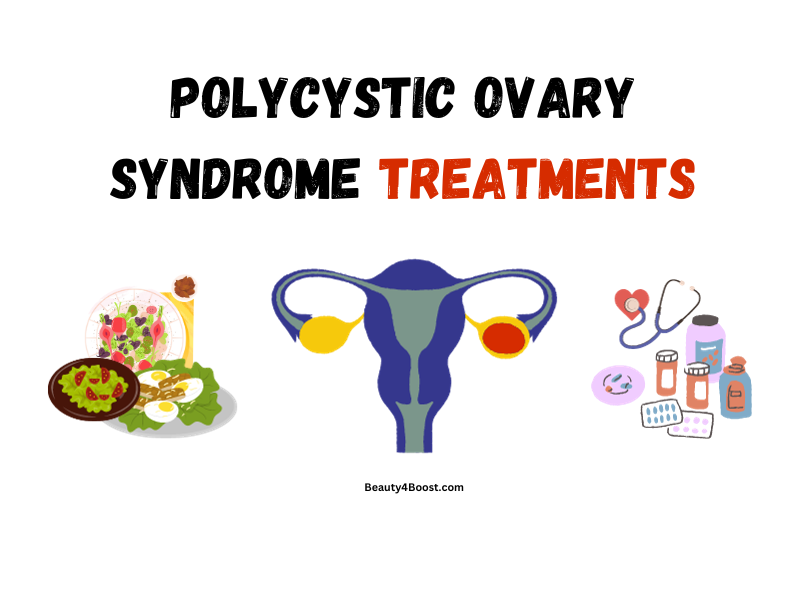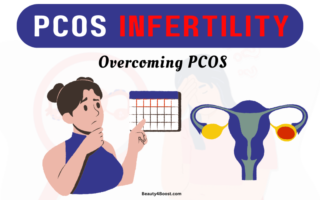Polycystic Ovary Syndrome Treatments
Polycystic ovary syndrome (PCOS) is a common hormonal disorder affecting many women worldwide. While there’s no cure, numerous treatments can help manage its symptoms. In this comprehensive guide, we’ll explore various polycystic ovary syndrome treatments, combining expert knowledge and personal experiences to provide valuable insights.
Introduction
Dealing with PCOS can be challenging, but understanding the available treatments is a significant step towards managing its effects. From lifestyle modifications to medical interventions, this article will cover everything you need to know about PCOS treatments.
Polycystic Ovary Syndrome (PCOS) is a common hormonal disorder that affects many women of reproductive age. The good news is that there are various treatment options available to help manage the symptoms and improve the overall well-being of individuals with PCOS. Treatment strategies can vary depending on the specific symptoms and goals of the patient. Lifestyle modifications are often recommended as a first-line approach, including dietary changes, regular exercise, and weight management.
These changes can help regulate menstrual cycles, reduce insulin resistance, and promote hormonal balance. In more severe cases or when lifestyle modifications are insufficient, healthcare providers may prescribe medications such as birth control pills, anti-androgen drugs, or insulin-sensitizing medications to address specific PCOS symptoms and promote regular ovulation. For those trying to conceive, fertility treatments, such as ovulation-inducing medications or assisted reproductive technologies, can be considered. Additionally, complementary therapies like acupuncture, herbal supplements, and stress management techniques may also play a supportive role in managing PCOS.
It’s essential for individuals with PCOS to work closely with healthcare professionals to develop a personalized treatment plan tailored to their unique needs and goals. Regular monitoring and adjustments to the treatment plan may be necessary to ensure the best possible outcomes. By addressing the underlying hormonal imbalances and associated symptoms, individuals with PCOS can lead healthier and more fulfilling lives while mitigating the long-term risks associated with the condition, such as diabetes and cardiovascular issues. Overall, with the right combination of treatments, many women with PCOS can effectively manage their condition and improve their quality of life.
Polycystic Ovary Syndrome: An Overview
Before diving into the treatments, let’s briefly understand what PCOS is. Polycystic ovary syndrome is a hormonal disorder characterized by enlarged ovaries containing small cysts. It can lead to a variety of symptoms, including irregular periods, acne, weight gain, and fertility issues.
Lifestyle Modifications
Dietary Changes
A healthy diet is crucial in managing PCOS. Focus on whole foods, low glycemic index carbohydrates, and adequate protein intake. Reducing sugar and refined carbohydrates can help stabilize blood sugar levels and regulate hormones.
Exercise
Regular physical activity can improve insulin sensitivity and reduce weight gain, a common issue with PCOS. Aim for a combination of cardiovascular and strength training exercises.
Stress Management
Chronic stress can exacerbate PCOS symptoms. Incorporate stress-reduction techniques such as yoga, meditation, or mindfulness into your daily routine.
Medications
Birth Control Pills
Oral contraceptives can help regulate menstrual cycles and control androgens (male hormones) in women with PCOS.
Metformin
This medication can improve insulin sensitivity and assist in weight management for those with PCOS.
Anti-Androgen Medications
These drugs can help reduce excess hair growth and acne, common symptoms of PCOS.
Assisted Reproductive Technology (ART)
For women struggling with infertility due to PCOS, ART procedures like in vitro fertilization (IVF) can offer a chance to conceive.
FAQs
Are there natural remedies for PCOS treatment?
Absolutely! Some natural remedies include cinnamon, spearmint tea, and inositol supplements. They may help regulate insulin levels and reduce symptoms.
How does PCOS affect fertility, and can it be treated?
PCOS can cause fertility issues, but various treatments, including medications and assisted reproductive technology, can help women with PCOS conceive.
Can PCOS be managed without medication?
Yes, lifestyle changes like a healthy diet, exercise, and stress management can significantly help manage PCOS without medication.
Is weight gain inevitable with PCOS?
While weight gain is common with PCOS, it’s not inevitable. Lifestyle changes and medications can help control weight.
How long do PCOS treatments take to show results?
The time it takes for treatments to show results varies from person to person. It’s essential to stay consistent and patient.
Can PCOS be completely cured with treatment?
PCOS cannot be completely cured, but with the right treatments, symptoms can be managed effectively.
Conclusion
Polycystic ovary syndrome can be challenging, but with the right treatments and lifestyle adjustments, it’s possible to live a fulfilling life. From dietary changes to medications and even assisted reproductive technology, there are various options available. Remember that PCOS is manageable, and you’re not alone in this journey.




